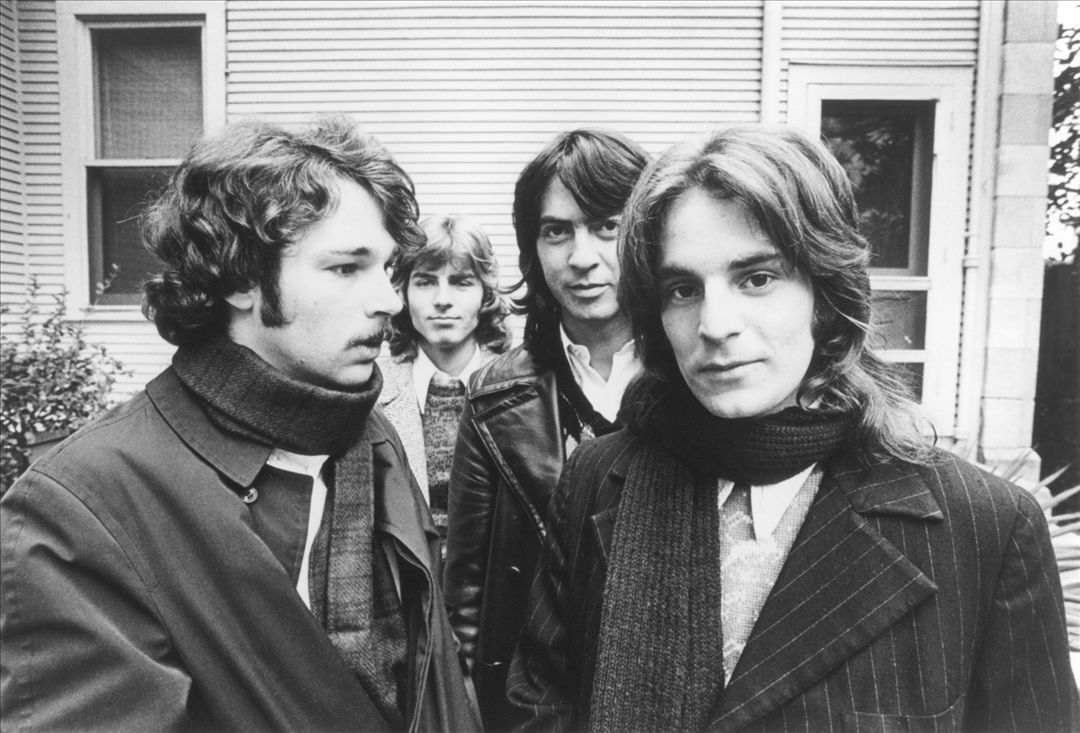Big Star documentary screens at Ron Robinson Theatre

WORDS / JEREMY GLOVER
It’s the rock story that plays out in cities across America far more often than the overnight sensation. A band releases a handful of albums and with each one expectations grow only to be erased with confusion, turmoil and the eventual breakup. In the 1970s the Memphis band Big Star created wistful, richly emotional rock music that should have defined an era but instead was relegated to negligible record sales and warm critical reception. Big Star has since emerged as the quintessential American cult band, producing three of the finest rock albums ever made that remain hugely influential touchstones for musicians and fans all across the world.
As part of its monthly film series, the Little Rock Film Festival hosted a screening of “Nothing Can Hurt Me” on Friday, May 2, at the Ron Robinson Auditorium in downtown Little Rock. The film details the struggles for record sales, the internal demons and mercurial nature of the band’s members as they navigate the darkly creative Memphis of the ‘70s.
The last surviving member of the group, drummer Jody Stevens, was on hand to reflect on the music’s enduring quality and the shifting dynamics of a band that always seemed to be in a state of flux. The easygoing, quiet Stevens was an anchor in the band that featured bassist Andy Hummel, founding member Chris Bell, and former teenage rock star with The Box Tops, Alex Chilton.
Stevens said that over the years a lot of the Big Star story has veered from the truth with quotes and events that don’t match up with what actually happened. The documentary gets it right, Stevens said, in particular the emotion of the band and it’s music.
“There’s a lot of really powerful moments for me. It’s a great film,” he said.
“It moves me the way it moved us at that time.”
While Big Star’s rock doc story is filled with tragedy, poor record sales, and diminished expectations as the 70s wore on, Stevens is quick to point out that there was never any fallout between band members. Outside of recording the albums, the band were doing what every musician and artist does in their twenties: taking college courses and spending time with girlfriends.
“Being in the studio was the normal times,” he said. “We all knew what the goal was getting the songs down in a way that made everybody happy.”
For a band that explored the melancholic, often marginalized feelings of adolescence, Big Star chose an outsized name for the band and their first album, “#1 Record.” Stevens pointed out that Chris Bell really thought it was going to be a number one record. The poor response and increased focus on Chilton led Bell to leave the band soon after the first album. The remaining three members continued on to produce a more stylistically nuanced second album “Radio City” before culminating with the adventurous, tortured last album, “Third/Sister Lovers.”
In the Q & A that followed the screening, the affable Stevens answered a range of awkward questions. When asked if it would have nice to have been famous, Stevens quickly replied that it would have been nice to have a career, but that he was appreciative of where he is at in his life having worked for Ardent Studios for the last 27 years.
“I get to come to Little Rock to talk to people about Big Star,” he said.





Comments